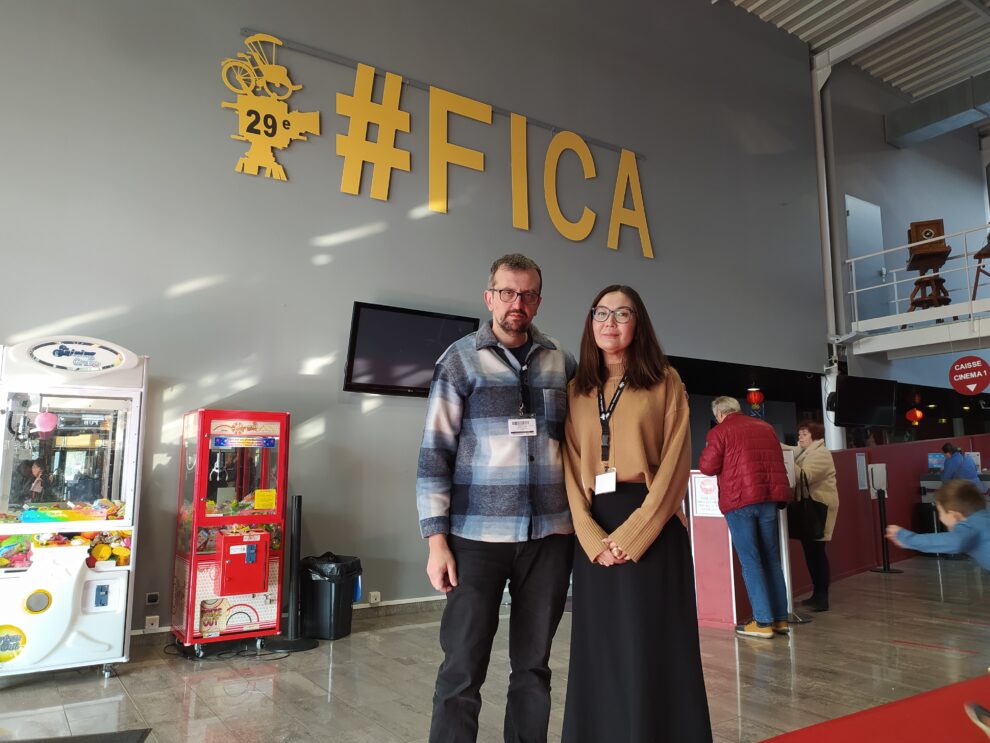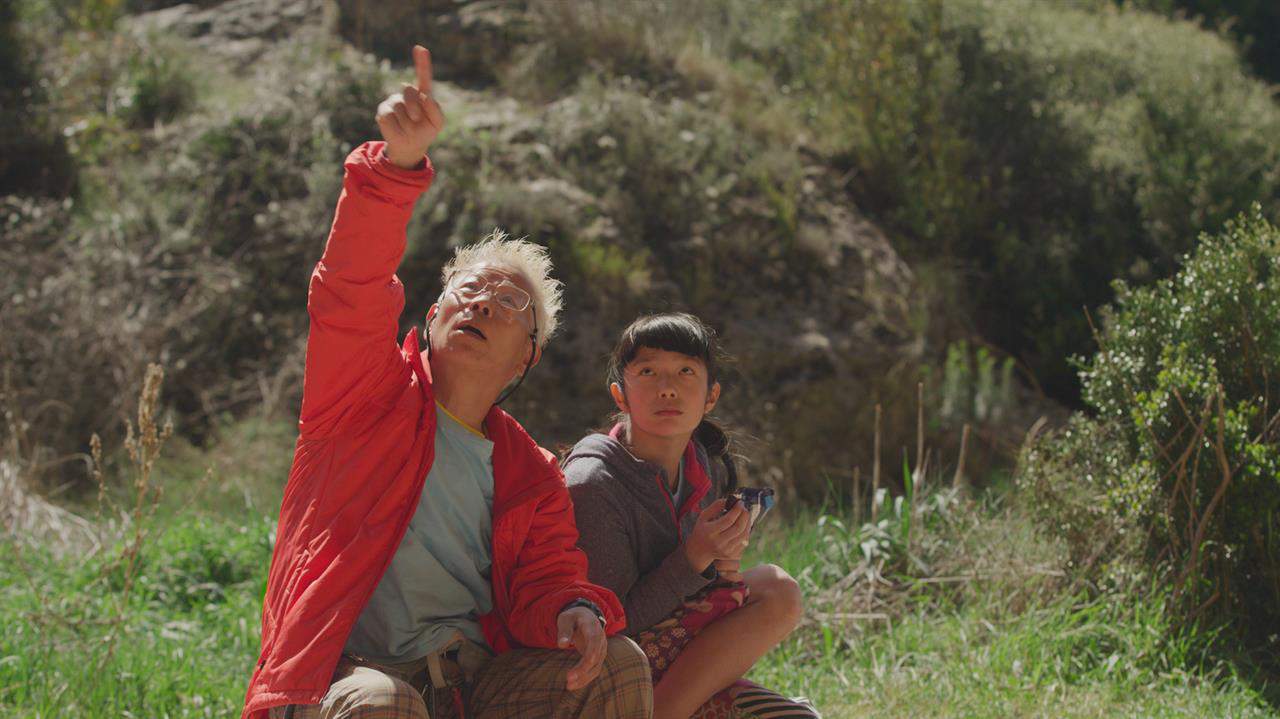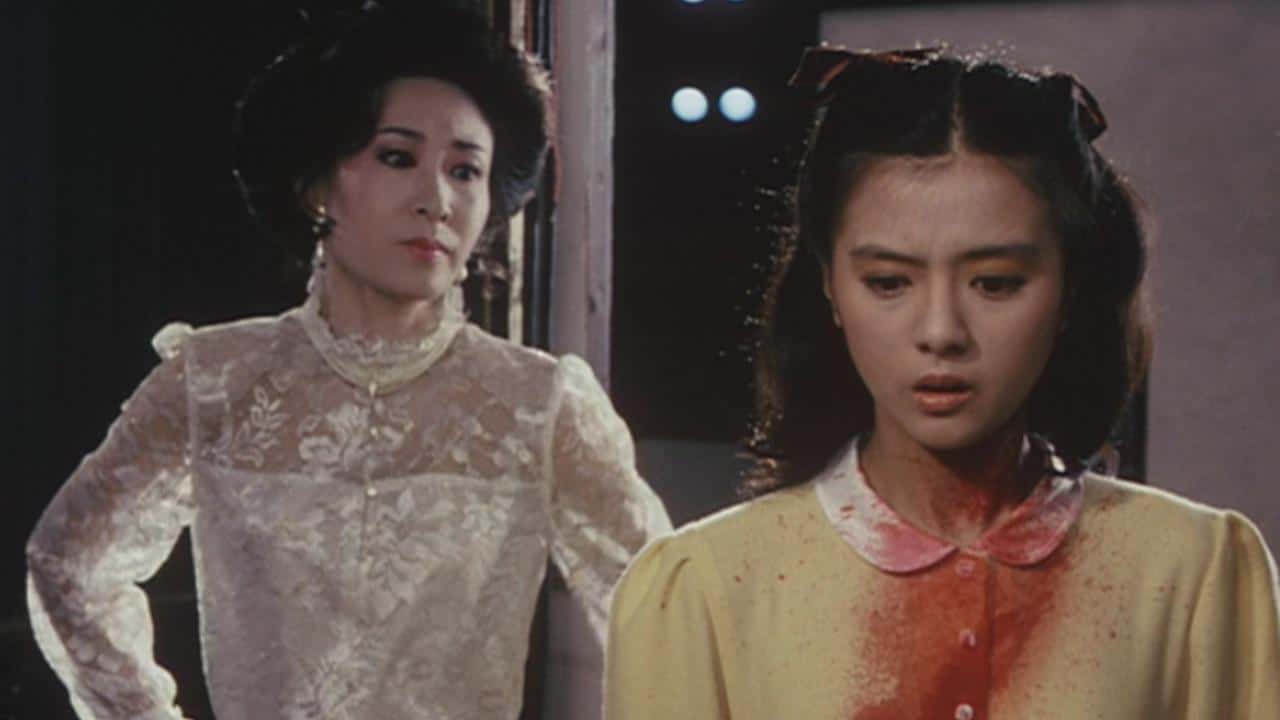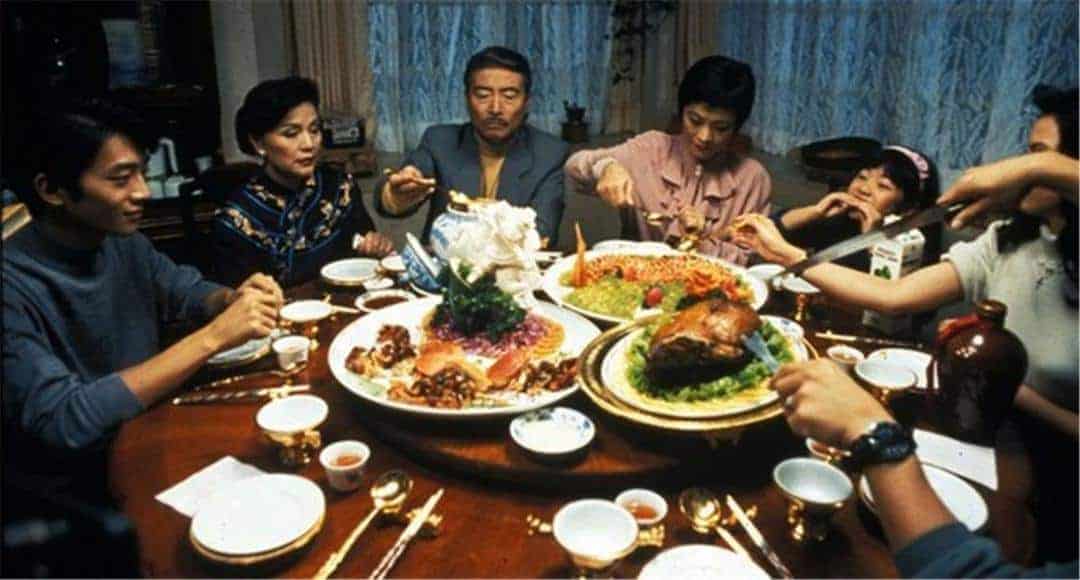Turmukh Nomuunzul received her Bachelor of Business Administration from the Institute of Finance and Economics, Mongolia, had her Master in Business Administration in the American Intercontinental University in London where she is also an Associate of Arts in Media Production. Currently she is working as music and film producer, as much as a scriptwriter. She was the scriptwriter of “Life” and the First Assistant Director and Executive Producer of “The Sales Girl”. She is also a Board Member of the Mongolian National Film Council.
On the occasion of “The Sales Girl” screening at FICA Vesoul, where it won the Cyclo D' Or, we speak with her about Mongolian cinema, the efforts of the National Film Council, “The Sales Girl”, the Ulaanbaatar International Film Festival and other topics.
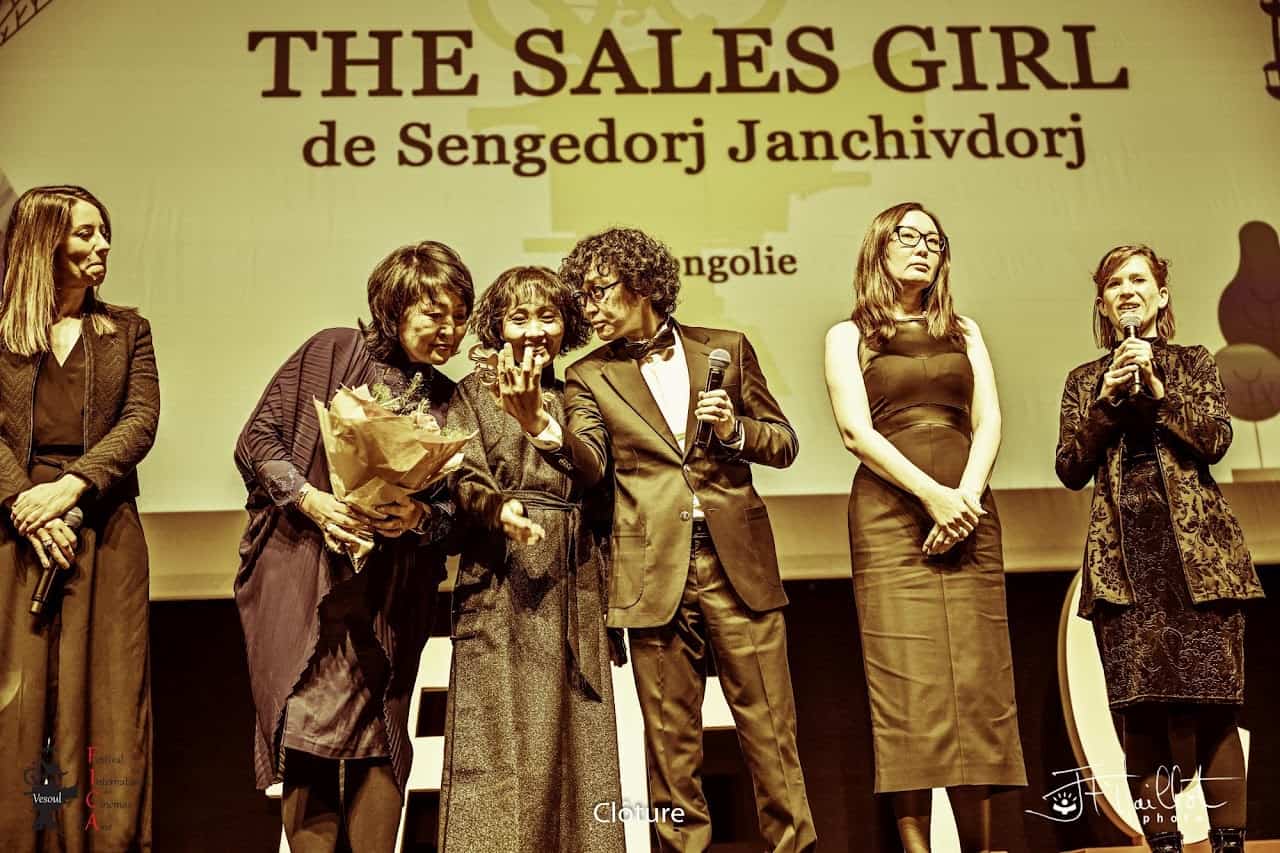
How would you describe the state of Mongolian cinema at the moment?
Mongolian cinema has a really big history. But after the 1990s, it has been just left out. Before the 1990s, there was the Mongolian Film Factory and that's why the government was supporting and producing all the films. After 1990, there was no funding from the government and so all the filmmakers had to go independent and they were struggling to make films by themselves. But now, it is getting better. As you know, we have a film-supporting law, which was effective from 2021. In this law, there is an incentive program and a film fund. Also, we just established the Mongolian National Film Council and now we are trying to support all the Mongolian filmmakers. It is getting better and better. There are more than 30 feature movies released in Mongolia every year and the industry is growing a lot.
So you're optimistic about the future of Mongolian cinema.
Yes. Now we have a film law, the National film Council and the Fund. The Council is now working really hard to attract foreign filmmakers to shoot in Mongolia and is trying to make some co-productions.
Can you tell me a bit more about the Film Council and what you do exactly for it?
I'm a board member of the Council, and I'm responsible for the foreign relations department. As I mentioned before, we just established the Council last year. So far, we went to Cannes, Venice and Busan, and last week in Berlin and we are trying to introduce our law and incentive program and we are also trying to attract foreign filmmakers. In September 2022, the Council organized The fame tour, inviting some major production heads and managers such as Warner Bros, Netflix, Paramount, HBO, Discovery etc. Our incentive program is attracting the attention of productions.
We have a really good incentive program. If you spend 500k in Mongolia, you can apply for 30% of the expenses to get the incentive. There is also a 10% incentive, if historical elements about Mongolia are included, and if you hire more than 50% of the crew from Mongolia, you can get 5% back on salaries spent.
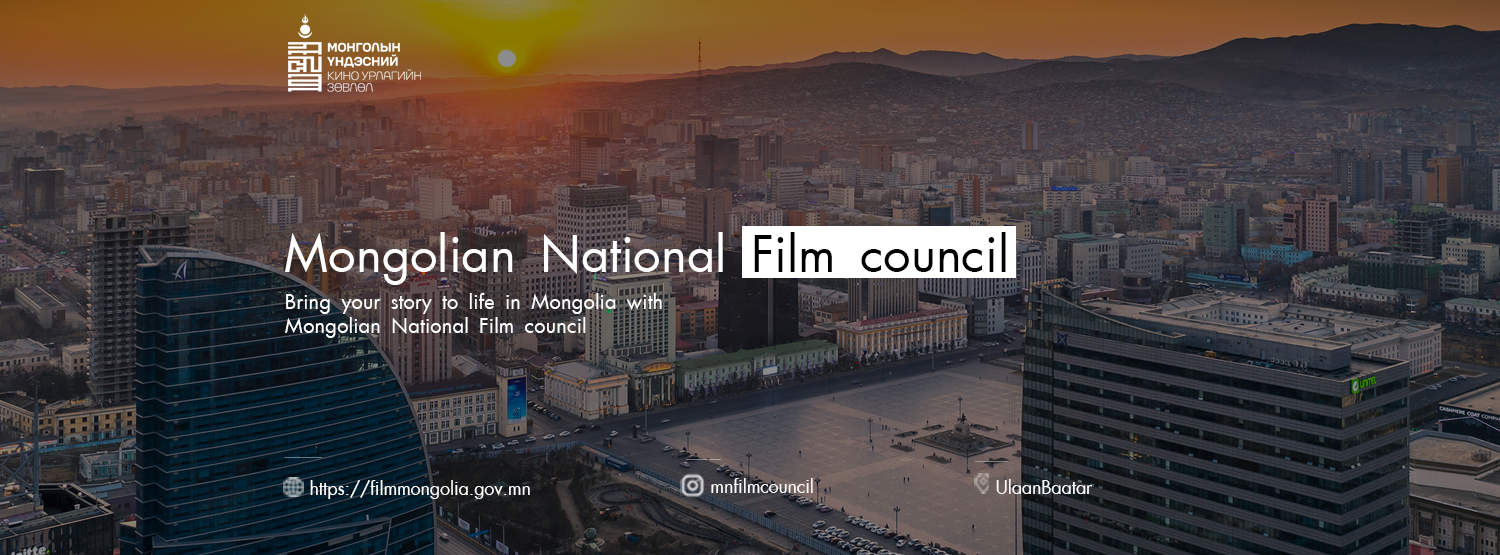
How was the response so far?
It was quite good. We have received some shooting permissions for a big project in Mongolia from foreign productions. Furthermore, some co-production projects are in the process of discussions so far. This summer the Council will organize The Fame tour inviting foreign film funds in Mongolia.
Most of the Mongolian films in the past were shot in the country, in the beautiful fields. But now they are starting to shoot in the cities also. Can you tell me a bit about this change?
There are more than 30 movies released in a year and maybe 70-80% of them are shot in the city and all the story is based in the city. Maybe 20 or 30% is about the countryside and nomadic life for example. But for foreign film festivals and some foreigners, the Mongolian countryside is the most known and are more interested in our nomadic life or our history and so they make movies on that subject and shoot in the countryside. Basically, that is the reason this part of Mongolia is more known outside the country. I think this will change as more movies now are shot in the city. For example, Sengedorj Janchivdorj's directed film “The Sales Girl” is a movie about the modern life of a Mongolian teenager and it was shot 100 percent in the city.
Would you say the Mongolian cinema has moved completely away from the Russian influence?
Yes, completely away. Before the 1990s, there was some impact from Russian because the Mongolian government and Russian government were so close. All the movies were produced by government funds, therefore there was some influence particularly regarding policies. But nowadays, people do not even have an idea about the Russians, my daughter for example, does not speak Russian at all.
I am sorry to say this, but for me, the biggest issue Mongolian films have is acting, I feel that it looks more like stage play acting than cinema acting. Is that something you see also?
Yes, exactly, I agree with you. We have the National University of Arts and Culture but they don't have a program focused on cinema acting. We do have a good experience in teaching based on theatrical acting and the scriptwriting is also focused on theatrical writing. It has been so for many years, that is probably the reason most Mongolian actors act in that style. We should change that and I feel all young filmmakers nowadays are trying to make a change in that regard. Also, as Mongolian National Film Council, we are trying to cooperate with the Ministry of Education in order to include a program about film acting and film scriptwriting in Universities, which we believe will make a change.
Check the review of the film
Is there a National Film School in Mongolia?
We have the National University of Arts and Culture. We do have some private universities that focus on film, but I would say there is a lack of programs. The Council is trying to amend that, by bringing some foreign professionals in the country to start a new program.
Do you have a rough estimate of how many screening rooms there are in Mongolia?
There are about 200 in the whole country of which about 45 in Ulaanbaatar. Mongolia has a lot of provinces and each has some theaters where someone can screen a movie in, so counting those, it is about a few hundreds.
Regarding the audience, do people go to the cinema and do they watch more foreign or local films?
Nowadays, they watch more Mongolian films. The Council is publishing a weekly report from cinemas and the Mongolian films have more attendance than the foreign blockbusters.
But what kind of movies do they want to watch?
Comedy and drama for the most part.
Are there any OTT services in Mongolia?
Of course, we have Sky Media and Univision, and these two have streaming services: Overall, I think there are six platforms.
And are they all in a good financial situation you'd say?
I would say, they are based on mobile providers, that is why if you're streaming movies, you can use your mobile data. I think they're in quite a good situation because of that.
What kind of movies do you like to watch?
I like independent movies. My father is a film director, Turmunkh Dorjkhand, he is the first Mongolian filmmaker to collaborate with a European filmmaker, in a co-production, in 1995. Before that, all Mongolian collaborations were with Russia, but this was the first one with Europe, a Belgian-Mongolian co-production, a documentary titled “The State of Dogs”. I had a really good influence from my father. When I was a child, he suggested to me I should watch “Citizen Kane”, Kieslowsky, Tarkovsky and that is why I liked art and independent films since childhood.
Is there a national archive in Mongolia? Because there was a tribute to Mongolian cinema here in Vesoul some years ago
Before the 1990s, all the government funded films were state archived.
Can you also mention some notable Mongolian filmmakers, whom you think will have an impact in the future?
Lkhagvadulam Purev-Ochir won an award in Venice for her short film, “Snow in September”. She is now shooting her first feature, and I would say she is very talented. Sengedorj and his older brother Jamiyansuren. Also Khoroldorj, who is making a very good documentary film which will be released soon, and also Bat-Amgalan are significant young filmmakers.
Can you tell me about your role in “The Sales Girl?”
I was assistant director and executive producer of “The Sales Girl”. Also I have worked in two movies as a producer and I have written three scripts.
Has it screened in Mongolian cinemas?
“The Sales Girl” went straight to OTT in Mongolia because it was the pandemic time. But “The Sales girl” is going to be released in theaters in Japan from 28th April 2023, even though it wasn't released in theaters in Mongolia.
Would you say that “The Sales Girl” was successful financially?
Yes, considering that Mongolian films are low budgeted it is not that difficult to break even and even make some profit.
Can you also give me some details about the Ulaanbaatar International Film Festival?
Last year was the 14th edition of the festival, and it was run by the Mayor of the city and the Mongolian Art Council. Now the National Film Council is co-organizing in order to make it bigger. We are planning to have an international competition section and a national one. The winner of the national competition is directly shortlisted for the Oscars.


